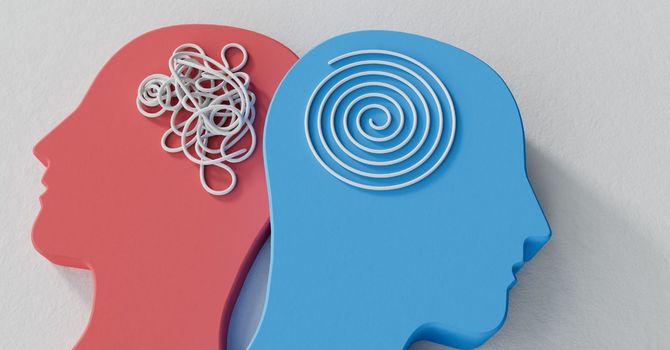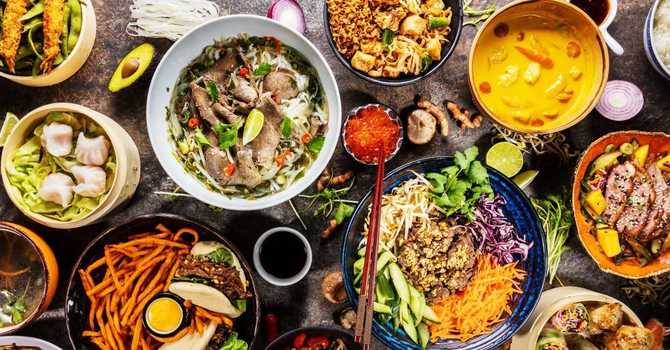Hello everyone, and welcome back to our series on exploring 'The Better Brain' and its profound insights into overcoming mental challenges through nutrition. Today, we're diving deep into Chapter 7 - pertaining to a topic that hits close to home for many of us: trauma, its impact on our mental health, and how we can use nutrition to foster resilience and healing. As a university student who's faced my share of stresses and witnessed friends grapple with their own, I've seen firsthand how trauma can shape our lives. But what if our diet could play a crucial role in our recovery?
University life, with its unique blend of pressures, from academic deadlines to social dynamics, often brings its own forms of upsetting experiences. Whether it's the stress of finals week, the struggle to fit in, or the challenge of balancing work and study, we've all felt overwhelmed at times. Personally, navigating these pressures while trying to maintain a healthy lifestyle has been a journey of ups and downs. This chapter's focus on nutritional strategies for building resilience has been a game-changer for me, offering hope and practical steps toward better mental health.
One of the most eye-opening aspects of this chapter is how it breaks down the science behind trauma's effect on the brain and the body's nutritional needs to combat stress. The authors Kaplan & Rucklidge provide compelling evidence on the importance of a nutrient-rich diet to support our nervous system. For instance, omega-3 fatty acids, magnesium, and B vitamins play key roles in managing inflammation and stress responses. These insights have encouraged me to think more critically about what I put into my body, especially during times of high stress.
Motivated by the chapter, I have been TRYING (preface on trying, no one is perfect) to start incorporating more omega-3 rich foods like fish and walnuts into my diet, alongside magnesium-rich greens and whole grains. The changes haven't just been about adding supplements; it's been a holistic shift toward viewing food as a form of medicine for the mind, as fuel for the body. As I go along with this journey I hope to notice differences in stress levels, focus, and overall well-being. It's empowering to know that something as accessible as nutrition can have such a profound impact on our mental health.
To anyone feeling weighed down by the aftermath of traumatic experiences or the continuous stresses of student or work life, I encourage you to explore the role of nutrition in your recovery journey. Start small—integrate more whole foods into your meals, consider quality supplements, and most importantly, listen to your body. Remember, it's not just about the food; it's about nurturing your body and mind to build resilience against whatever challenges come your way. Remember that nutrition and finding the right therapist to support your recovery is key (see our wonderful team at www.eckertcentre.com/about.
In closing, this chapter from 'The Better Brain' has not only deepened my understanding of trauma and nutrition but also inspired me to take actionable steps toward healing and resilience. As we continue our individual paths, let's keep the conversation going—sharing experiences, supporting each other, and exploring how we can all live better, healthier lives. I highly encourage you to read Chapter 7 if you have lived through a traumatic event, as the authors share some inspiring stories of fellow survivors of trauma. Kaplan & Rucklidge showcase the linkage between trauma and food - a deeply important and not often talked about subject.
Action: Visit https://eckertcentre.com/pages/revive-wellness-services to learn more about our partnership with Revive Wellness (Registered Dietician services) and book your free consultation to see how they can help your family improve mental health through food.
Madison is a Psychology Assistant; Digital Marketing Assistant at Eckert Centre. She's currently deepening her understanding of psychology at the University of British Columbia. Madison brings her passion for mental health to our community through her writing. As our blogger in residence, her contributions offer a fresh perspective and shed light on the importance of mental wellbeing. We are grateful for her eloquent words and the insights she shares on her journey towards cultivating a "Wise Self." For more insights, information, or to book an appointment, please visit www.eckertcentre.com or reach out to our team at info@eckertpsychology.com.
Works Cited
Kaplan, Bonnie J., and Julia J. Rucklidge. The Better Brain: Overcome Anxiety, Combat Depression, and Reduce ADHD and Stress with Nutrition. Mariner Books, 2022.




.jpg)